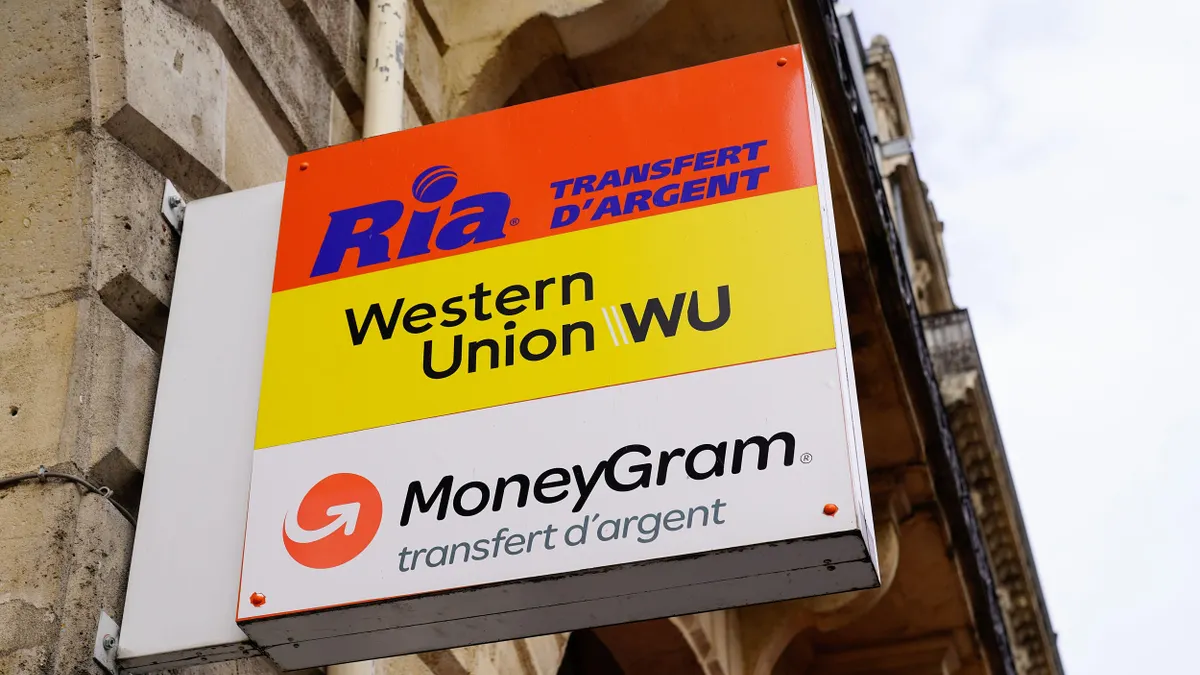Dive Brief:
- International money transfer company Western Union has agreed to acquire International Money Express in a deal valued at $500 million, the companies said in a joint Sunday press release. The purchase is expected to help Western Union scale its presence in Latin America and build up its North American business as well, the release said.
- Both of the companies’ boards have approved the combination and they expect to complete the transaction by the middle of next year, the release said.
- ”This acquisition strengthens Western Union’s retail offering in the U.S., expands market coverage in high potential geographies, and is expected to accelerate digital new customer acquisition,” the release said.
Dive Insight:
Denver-based Western Union, a money transfer business founded in 1851, has struggled to grow in recent years as digital competition increases, though it does offer a digital wallet in some countries.
Some of the rival fintechs include Remitly, mainly in the consumer arena, and Payoneer Global, in the business-to-business category, with stablecoin plays coming on strong also.
Western Union’s global network has agents that handle its transfers in 200 countries, according to its annual filing with the Securities and Exchange Commission. The company reported revenue last year of $4.2 billion, down 3% from the prior year. Still, net income jumped about 50% to $934 million, partly due to a tax benefit.
“This acquisition is a disciplined, strategic step that strengthens our North America operations and expands our presence with key consumer segments across the U.S.” Western Union CEO Devin McGranahan said in the release.
Annual revenue at Miami-based International Money Express, also known as Intermex, was flat last year at about $659 million and the company’s net income was also little changed at about $59 million, according to its annual filing. The company has about six million customers, according to the release.
The price paid for Intermex wasn’t as rich as that paid recently for other fintech acquisitions, noted analysts at William Blair, who commented on the deal in a note to clients Monday. They cited geopolitical turmoil between the U.S. and Latin America, a recent 1% U.S. tax imposed on cash remittances and unspecified “uncertainties” in the traditional retail remittance market.
Western Union expects $30 million in “cost synergies” within 24 months, the release said. Such expense improvements often result from cutting employees as the companies merge operations.
At the end of last year, the company had about 9,100 employees in some 50 countries, with about 1,400 in the U.S., the filing said. Intermex, led by CEO Bob Lisy, has about 1,100 full-time employees worldwide, with about 200 who are part-time, according to its filing. A spokesperson didn’t immediately respond to a question about whether Western Union will retain workers.
Aside from better coverage in Latin America, Lisy said in the release that the merger would drive growth in the North American business too. Revenue will benefit from broader distribution and more services, the release said.
“This acquisition strengthens Western Union’s retail offering in the U.S., increases market coverage in high potential geographies, and is expected to accelerate digital new customer acquisition,” Financial Technology Partners Managing Partner Steve McLaughlin said by email. The advisory firm guided Intermex in crafting the deal.














